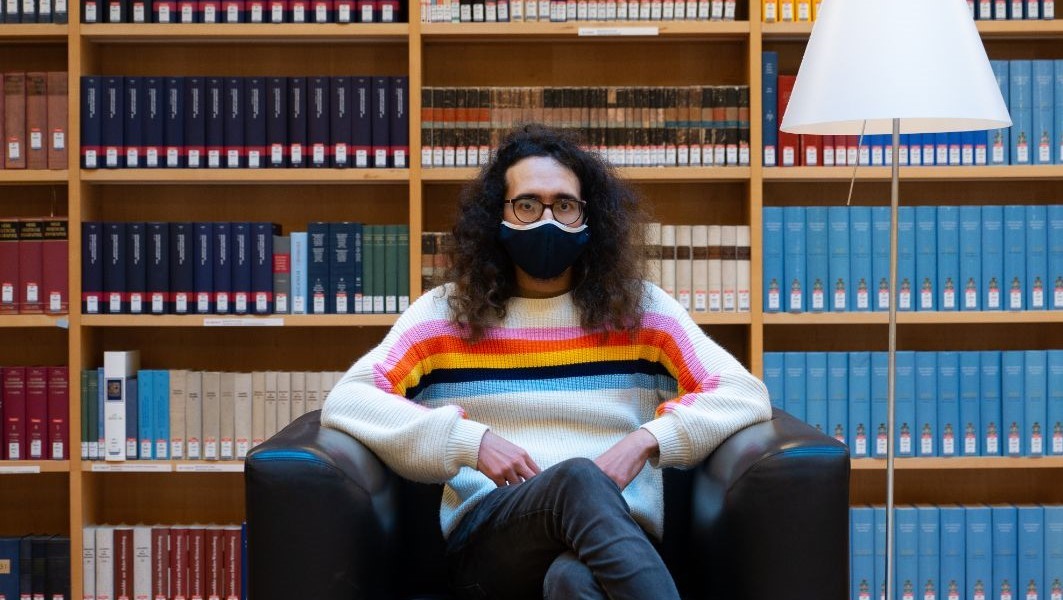
The pandemic changed everything. I was supposed to finish my master’s in July.
Then my plan was to start working on my application for my Ph.D. But then the pandemic
postponed all my deadlines and my graduation. Finally, my scholarship expired, I cannot
afford to stay any longer and tomorrow I have a flight back to Colombia.
Given the current circumstances you will be home for Christmas. Are you religious?
No, what I like most about Christmas is the food.
Back home you’re going to see…
MY CATS! I miss them. Dante and Descartes.
You’re into literature and philosophy and you especially like Dante and Descartes? ?
Not that much. The names for the cats were meant to be rather a word pn. Descartes means in Spanish being really picky – discarding everything. So, in English, his name would be discarded.
Do you have a problem with making decisions?
No, just with my cats’ names. I am decisive when making decisions. I know what I want.
What did you study in Weimar?
I did my Master’s in Fine Arts – named Public Arts and Artistic Strategies. But the most I learned during my time in Weimar is based on my experience with the international community. Through the program, I met people from all over the world.
Have you learned more about Germany or more about the world while studying in Germany?
More about the world. However, Weimar is beautiful and quiet. From the very beginning, I had this connection with Weimar since the quietness matched my personality. Otherwise, by meeting all the international people I felt like being home.
The same feeling of ‘home’ like in Colombia?
Not the same in terms of the surroundings – people, architecture or nature. But in terms of the friends I made and the tranquillity I appreciated – I somehow felt at home.
Have you had any bad experiences in Weimar?
Not specifically Weimar as a city. But I definitely struggled with the German bureaucracy as a foreigner.
What did you do before your master’s program?
Back in Colombia, I studied social-communication and my focus was on filmmaking.

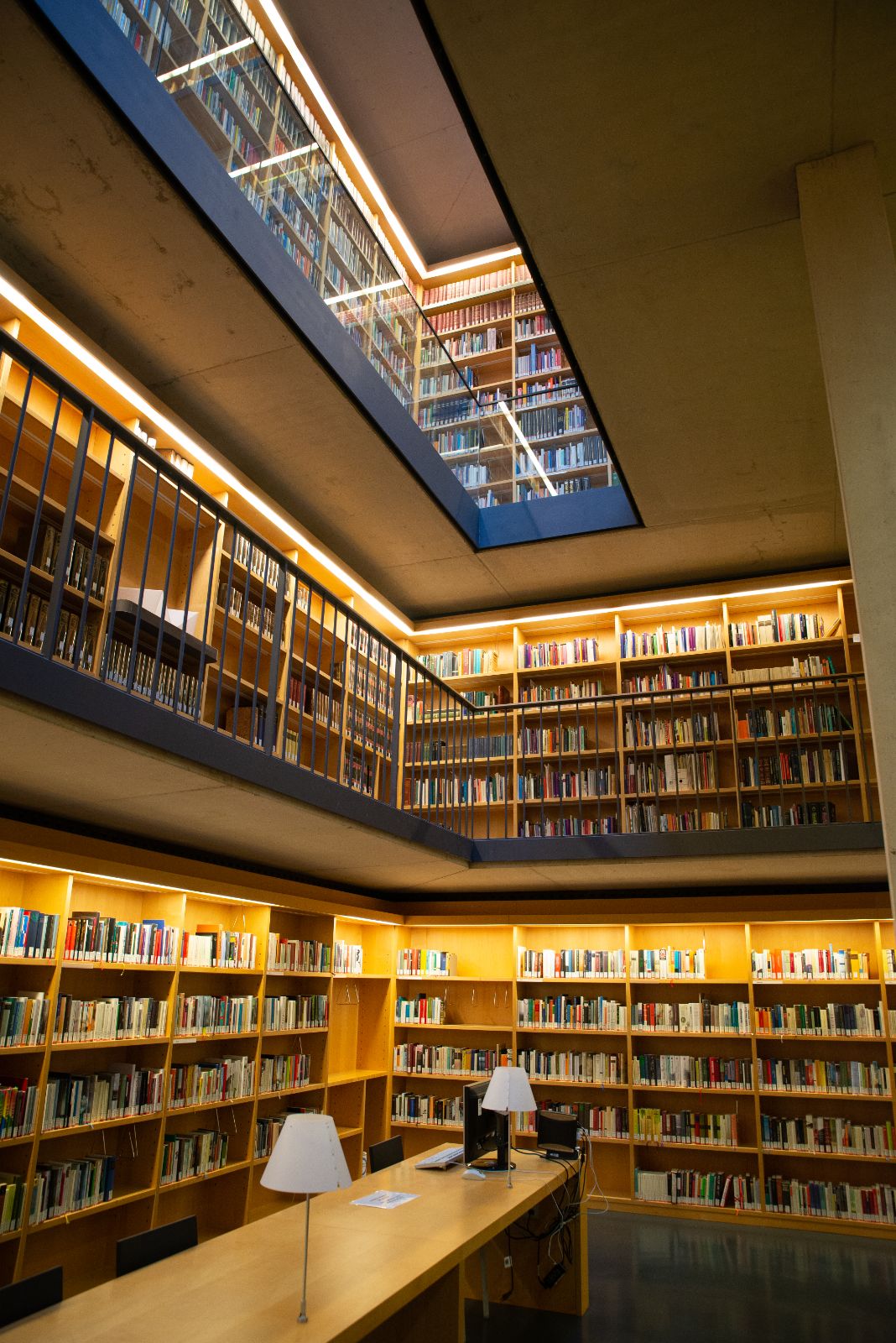
Are you an artistic human being?
For as long as I can remember I’ve had approaches to art. My mom was a teacher and taught me how to read and write and also how to dance, do theater and how to paint. She was always pushing me towards art. Actually, we don’t have a really close relationship. I lived with her the first five years of my life and in this time I learned all that defines me. I am grateful for this. Our relationship broke because of the Colombian Conflict. We were living in the countryside in the middle of Colombia which was a hotspot of the conflict and at the age of five, she sent me away to live with my grandparents. After this, our relationship deteriorated over time. However, I know that she sent me away to protect me.
Tomorrow I am going to fly back to Colombia. After I have spent my quarantine in the city of Cali I will go to my hometown. There I want to do research for my art project regarding the conflict in Colombia and try to reconnect with my mother and my sister.
Can you tell me more about your relationship with the conflict in Colombia?
Right now I am working with the Colombian Conflict through my art. My thesis from my master’s was related to my personal experiences during my childhood. I was always hiding during the shootings and seeing the helicopters and military men passing by. That was everyday life. Through my artwork, I try to remember. Being a child I didn’t know what was happening. The Conflict was kind of hidden to me. The adults were never talking about it. That’s why I have fragmented memories so now I’m trying to put all these memories together through my art.. For my Ph.D. I want to continue with this introspection or investigation into my memory and childhood and interview other people about their perspectives.
What is your perspective?
In my opinion, the Colombian government has done nothing for the people while some people are just trying to do their best. However in rural areas like my home region, people are really abandoned. I think the main problem of Colombia regarding the conflict is inequality because of the government. It has been doing bad things with the complicity of military groups and para-military groups. Now in Colombia, it is really dangerous to be a social activist who fights for the rights of the people. I have friends who are doing activism in the cities but the ones who are being killed the most are the ones in rural areas. There are mineral and extractive, raw material producing companies for example who chase social activists with the complicity of the military and the state. A lot of ecologists have been killed.
Colombia is one of the most dangerous countries in the world to practice journalism. Are you afraid of conducting your research?
I am not afraid. Maybe because I am going to the places where I know some people. But you never really know. It is very random the way people, companies or the government can see you as a threat. But the research is really important to me personally.
How have your experiences and memories impacted your identity?
I never thought about myself as a victim of the Conflict because I was privileged enough for having a roof over my head, food in my stomach and the opportunity to go to school after my mom had sent me away to my grandparents. But when I think about it now, I come to realize that I was a victim too because I was forced to leave my hometown which resulted in me losing my relationship with my mother. The strongest memory of my childhood is when I was about five or six years old. There was a shooting in my town, our house was made of wood and then this bullet hit right next to my head right through our house. When my mom came to the room to catch me and my sister she saw blood coming out of my ear and she thought they had killed me and I remember seeing her terrified face. The eardrum of my left ear exploded and since then I’ve had problems with infections and I don’t hear that well on that ear anymore. Before I came to Germany I didn’t think about the conflict and my childhood experiences. I was busy earning money to survive. This happens to many Colombians. But since I came to Germany with a scholarship, I had time to reflect. So being in Germany allowed me to think about the Conflict in Colombia.
Is it good or bad to work up childhood traumas?
I think it is good to remember your story even if it is dramatic or traumatic. In my case, it is good to put my memories into artwork because it is another way to tell the story of the conflict. The official story is not the real or the only one. Everyone has their own story. If you can tell your own story and many other people can do too, one can understand the complex ways how the conflict works. Another aspect is that you get the opportunity to heal. The media in Colombia primarily tells stories about conflicts in other parts of the world but not the stories about the conflict in our own country. Growing up I remember hearing in the news everything about the Kosovo War, the Afghan War and the Situation in Serbia Sarajevo. So I learned: the terrible things were happening on the other side of the world.
Do you have good memories of your childhood?
Of course. Everything related to art. Dancing. Theater. I was living in a rural area, which means that I was free to explore the countryside, go to the river, ride horses – a childhood full of freedom. War and freedom. As a child, I didn’t know what was happening. I used to see guys in military clothes but many of them were like friends – Guerillas or military men, I didn’t know.
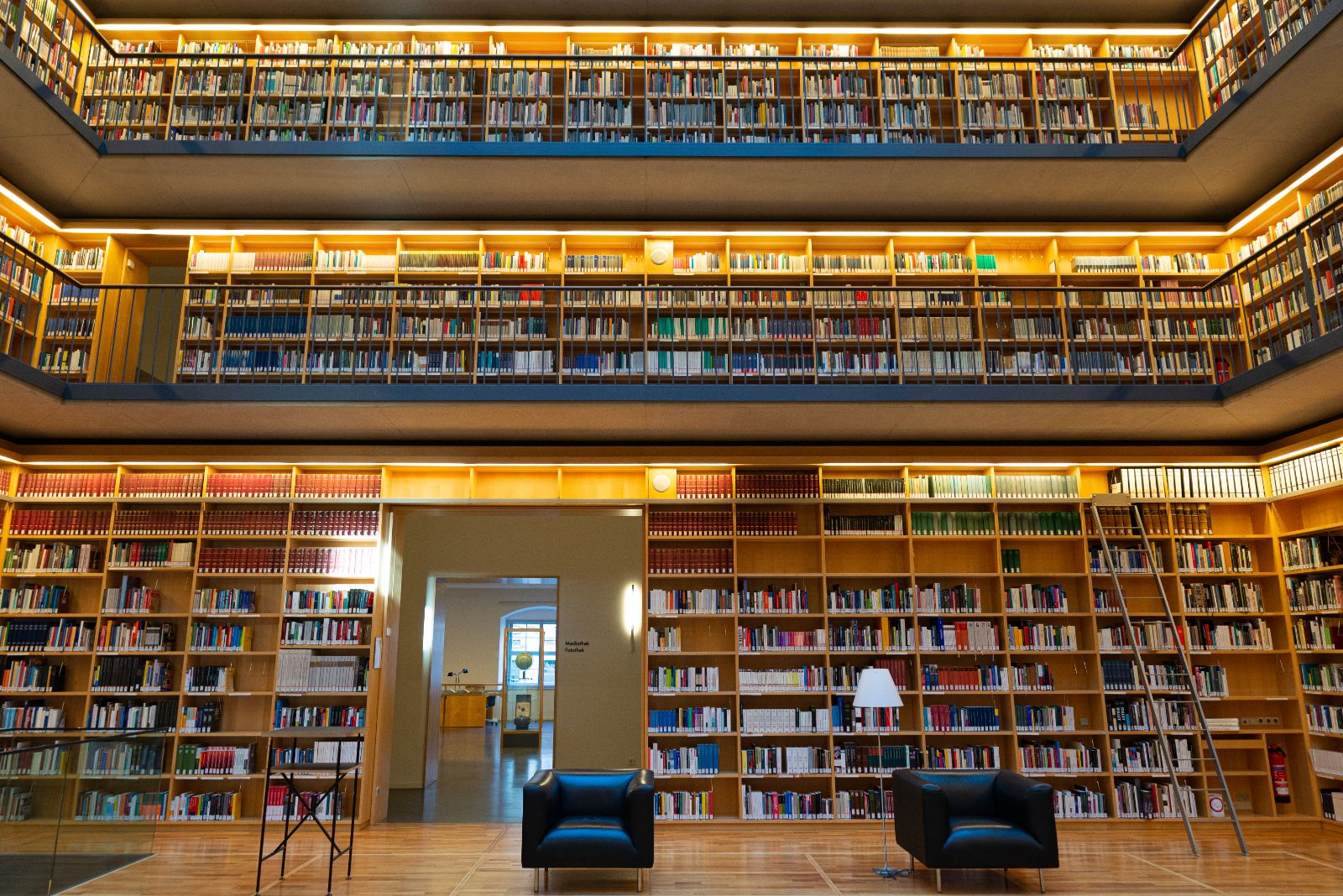
Who were the bad ones?
When I was a child I didn’t know. The Guerillas have been always portrayed as big monsters in the media and the biggest threat to Colombia but the military and the paramilitary are responsible for much more cruelty!
- According to a study by Colombia’s National Centre for Historical Memory, 220,000 people have died in the conflict between 1958 and 2013, most of them civilians (177,307 civilians and 40,787 fighters), and more than five million civilians were forced from their homes between 1985 and 2012, generating the world’s second-largest population of internally displaced persons (16.9% of the population in Colombia has been a direct victim of the war. 2.3 million children have been displaced from their homes, and 45,000 children killed, according to national figures cited by Unicef. In total, one in three of the 7.6 million registered victims of the conflict are children, and since 1985, 8,000 minors have disappeared. A Special Unit was created to search for persons deemed as missing within the context of and due to the armed conflict. (https://en.wikipedia.org/wiki/Colombian_conflict).
- Aktuell (Mai 2021):
“PROTESTE ESKALIEREN WEITER”
„Es ist der Staat, der tötet“: Wieso die Jugendlichen in Kolumbien auf die Barrikaden gehen. Bei den Demonstrationen in Kolumbien prallen ein militarisierter Staat und verzweifelte Jugendliche aufeinander. Mindestens 24 Menschen sind bislang ums Leben gekommen” (Spiegel 2021).
How has your life changed when you moved to your grandparents?
It changed a lot. It was also a proper town. In my old town, we had electricity just for three hours a day. In my new town, my grandparents even had a TV. I spent my youth in this new town. My youth was very quiet. I read and I wrote a lot. I’ve got subsumed by literature. I locked myself up with my books. This made me happy. I learned a lot about the world by reading.
What have you learned?
I grew up learning from my new surroundings in the city that my mom was a bad mom because she sent me away. But literature helped me to understand that she wasn’t a bad mom, she had to make decisions as every character in a book does – sometimes difficult ones. On the other side, the criticism from my grandparents and my new surroundings of my mother was part of the culture they were living in – putting a high value on the role of the mother to take care of their children under any circumstances.
What do you think about gender rules in Colombia?
They’re pretty shitty. Nowadays people are changing or at least some are pressing for a change. But the country is super catholic. During my youth, I have always felt like an outsider. Even within my own family. I wasn’t part of it. I was super different. I knew that they were expecting me to be and to act differently. However, what satisfied them was that I was a good student. Still, they never asked me how I am or how do I feel. Their world was not my world. My world was literature. Was I pushed into this world? I don’t know. I really enjoyed it.
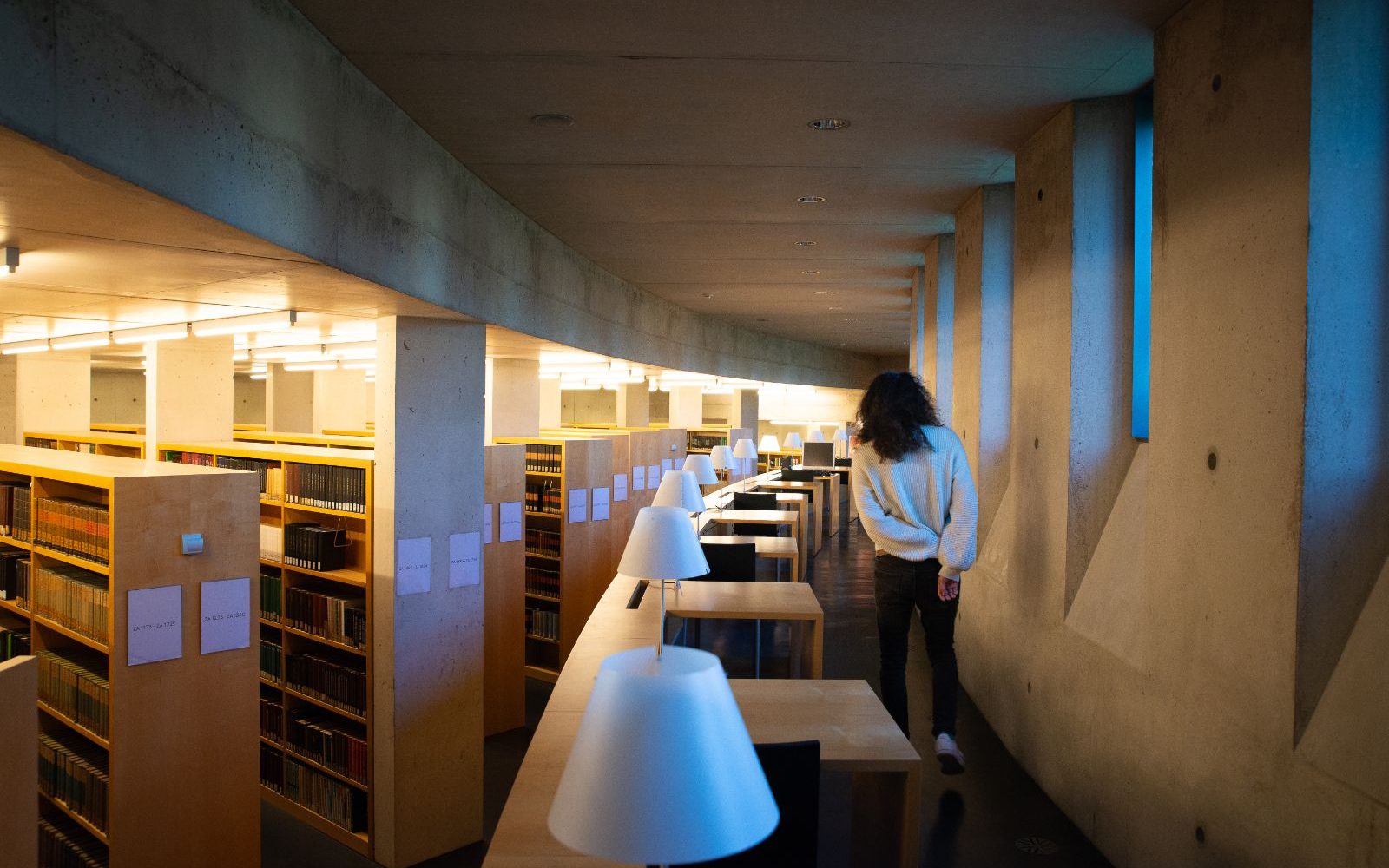
Can you tell me more about your literature world?
Mostly I was reading novels and poetry. The first book that was a revelation to me that I want to become a writer was a book by Gabriel García Márquez “La Hojarasca” (Leaf Storm). Most people only know his famous book “One Hundred Years of Solitude”. I was fascinated by how he was describing everything. Especially describing everything in a different way than I was used to. You could describe these branches of the tree over here, but he would describe the whole life inside the branches and the people passing below the branches. Later on, I discovered the novels of Virginia Woolf and I was amazed by her way of describing everything and the thoughts of the characters – The Waves is my favorite book of hers.
Can I ask you why you have changed your name to Lucia?
Sure. During my bachelor’s I was working on my thesis about gender and sexualities and how to perform gender. I was thinking and talking a lot about these topics but then I came to realize that I need to do something real. So, I started this performance by changing my previous male name into a woman’s name in order of showing the fragility of gender. I went to the office where you change your name and afterwards, I had to change every document too what took me 4 years. What is always interesting when people think they are talking for example on the phone or by email to a lady called Lucia they are first shocked if they happen to see me in person. I like those misunderstandings because they provide me with the opportunity of talking about the topics of gender and identity. I think people don’t have to fulfill special roles just because they were born as a girl or a boy – this doesn’t define you. I remember meeting this taxi driver who asked me “why do you have this name, don’t you want to change it into a man’s name?” And I said “no, I am okay with this” and he replied, “you know what? You’re right. Do you wanna know my name? – it’s ‘Fraulien”. I didn’t tell him that his name ironically sounds like ‘like Frau Lin’, like a lady in German.
There is this ongoing discussion about a ‘crisis of masculinity. What do you think about this?
My only thought about this is that men should stop being men in the way they were culturally raised. It is important to get rid of this cultural meaning of being a man and start to create one’s own identity. Growing up you are always told how to act. I remember during my childhood when my sister visited me and played with dolls that I wanted to play together with her but then my aunt came and told me “boys don’t play with dolls”. I was super hurt at this moment. Even in this case I just wanted to play together with my sister and not especially with the dolls.
Do you remember your first interest in art?
I remember one situation during a theater play from my mother. She used to organize as a teacher these big cultural events in our rural area and in one play she acted as a character who gets shot. Before she got killed she drank a cup of chicken blood and when she got shot she fell to the ground and all the blood came out of her mouth. For me this moment was magical. Knowing the strategies you can use for theater fascinated me. I told everyone “this is not real blood, this is chicken blood”. At this moment I realized who powerful art is.
You’re leaving tomorrow. How was Weimar for you?
I‘ve met amazing people and I’ve made many very good friends. My studies went very well too and I was really free in my artistic expression. I never felt the pressure of performing but also there was never a lack of inspiration.
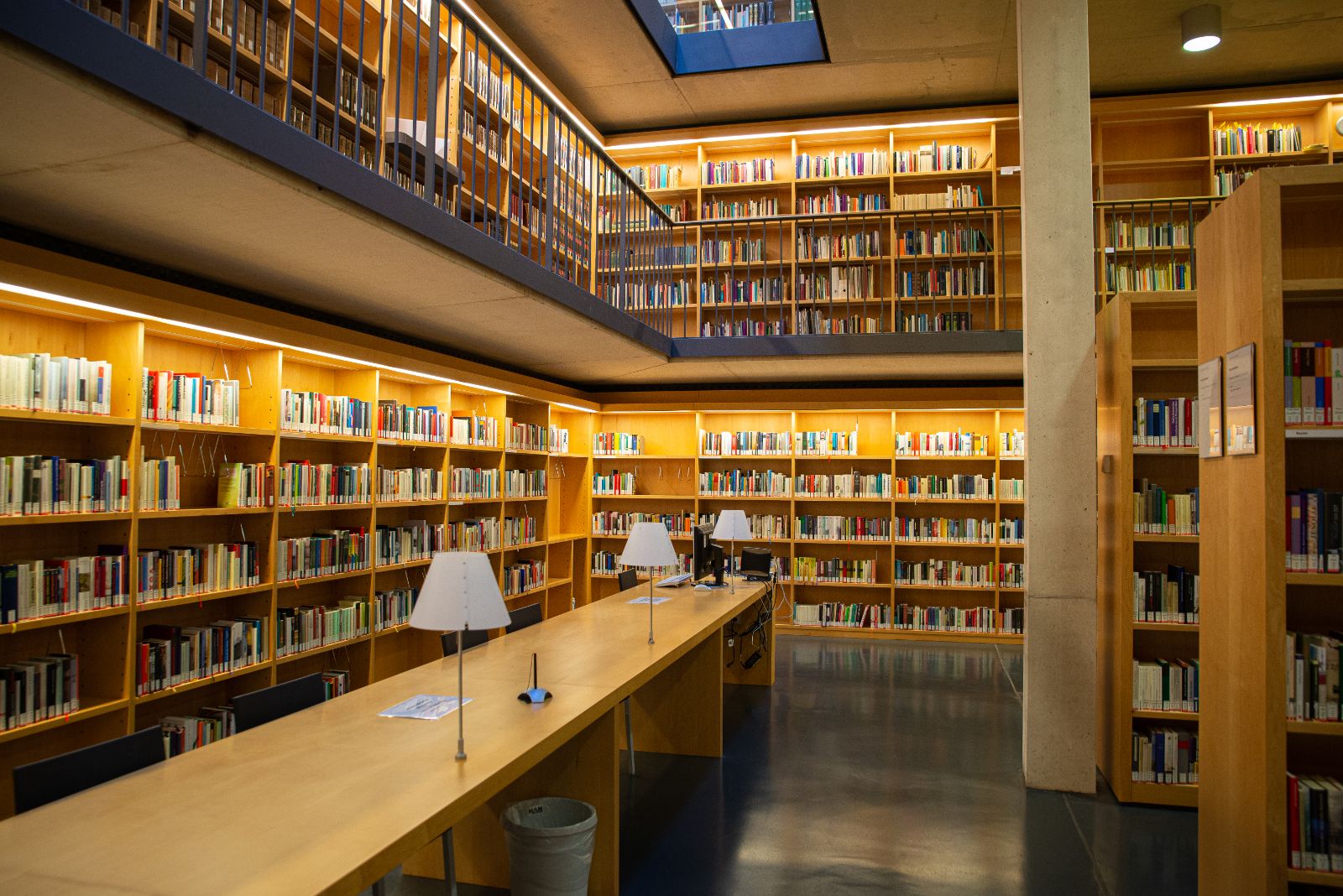
Can you tell me more about your literature world?
Mostly I was reading novels and poetry. The first book that was a revelation to me that I want to become a writer was a book by Gabriel García Márquez “La Hojarasca” (Leaf Storm). Most people only know his famous book “One Hundred Years of Solitude”. I was fascinated by how he was describing everything. Especially describing everything in a different way than I was used to. You could describe these branches of the tree over here, but he would describe the whole life inside the branches and the people passing below the branches. Later on, I discovered the novels of Virginia Woolf and I was amazed by her way of describing everything and the thoughts of the characters – The Waves is my favorite book of hers.
Can I ask you why you have changed your name to Lucia?
Sure. During my bachelor’s I was working on my thesis about gender and sexualities and how to perform gender. I was thinking and talking a lot about these topics but then I came to realize that I need to do something real. So, I started this performance by changing my previous male name into a woman’s name in order of showing the fragility of gender. I went to the office where you change your name and afterwards, I had to change every document too what took me 4 years. What is always interesting when people think they are talking for example on the phone or by email to a lady called Lucia they are first shocked if they happen to see me in person. I like those misunderstandings because they provide me with the opportunity of talking about the topics of gender and identity. I think people don’t have to fulfill special roles just because they were born as a girl or a boy – this doesn’t define you. I remember meeting this taxi driver who asked me “why do you have this name, don’t you want to change it into a man’s name?” And I said “no, I am okay with this” and he replied, “you know what? You’re right. Do you wanna know my name? – it’s ‘Fraulien”. I didn’t tell him that his name ironically sounds like ‘like Frau Lin’, like a lady in German.
There is this ongoing discussion about a ‘crisis of masculinity. What do you think about this?
My only thought about this is that men should stop being men in the way they were culturally raised. It is important to get rid of this cultural meaning of being a man and start to create one’s own identity. Growing up you are always told how to act. I remember during my childhood when my sister visited me and played with dolls that I wanted to play together with her but then my aunt came and told me “boys don’t play with dolls”. I was super hurt at this moment. Even in this case I just wanted to play together with my sister and not especially with the dolls.
Do you remember your first interest in art?
I remember one situation during a theater play from my mother. She used to organize as a teacher these big cultural events in our rural area and in one play she acted as a character who gets shot. Before she got killed she drank a cup of chicken blood and when she got shot she fell to the ground and all the blood came out of her mouth. For me this moment was magical. Knowing the strategies you can use for theater fascinated me. I told everyone “this is not real blood, this is chicken blood”. At this moment I realized who powerful art is.
You’re leaving tomorrow. How was Weimar for you?
I‘ve met amazing people and I’ve made many very good friends. My studies went very well too and I was really free in my artistic expression. I never felt the pressure of performing but also there was never a lack of inspiration.
How do other people see you?
When people see me they don’t see conflict. Sometimes people ask me how I can tell my story without crying but I have been repeating the story so many times to myself that I am fine with it. People say that I am very confident but I am not. Or that I have a big personality which I don’t know if I do have. Personally, I might say that I am confident in for example describing my ideas when I am doing artwork. I truly believe in my capacity for creating. But not anywhere else.
What makes you optimistic at this moment about the future?Through the pandemic I’ve learned this way of life to keep doing, keep resisting, and now going back to Colombia I feel super empowered. Also, because I am going to be able to take on my current artwork over there too. I feel I have the power now for doing this.
Do you have any idol or superhero who assists you?
Maybe Virginia Woolf. She is just a strong person.
What is your motto for life?
It is important to always do the revolution. I am trying to do this every day of my life.


